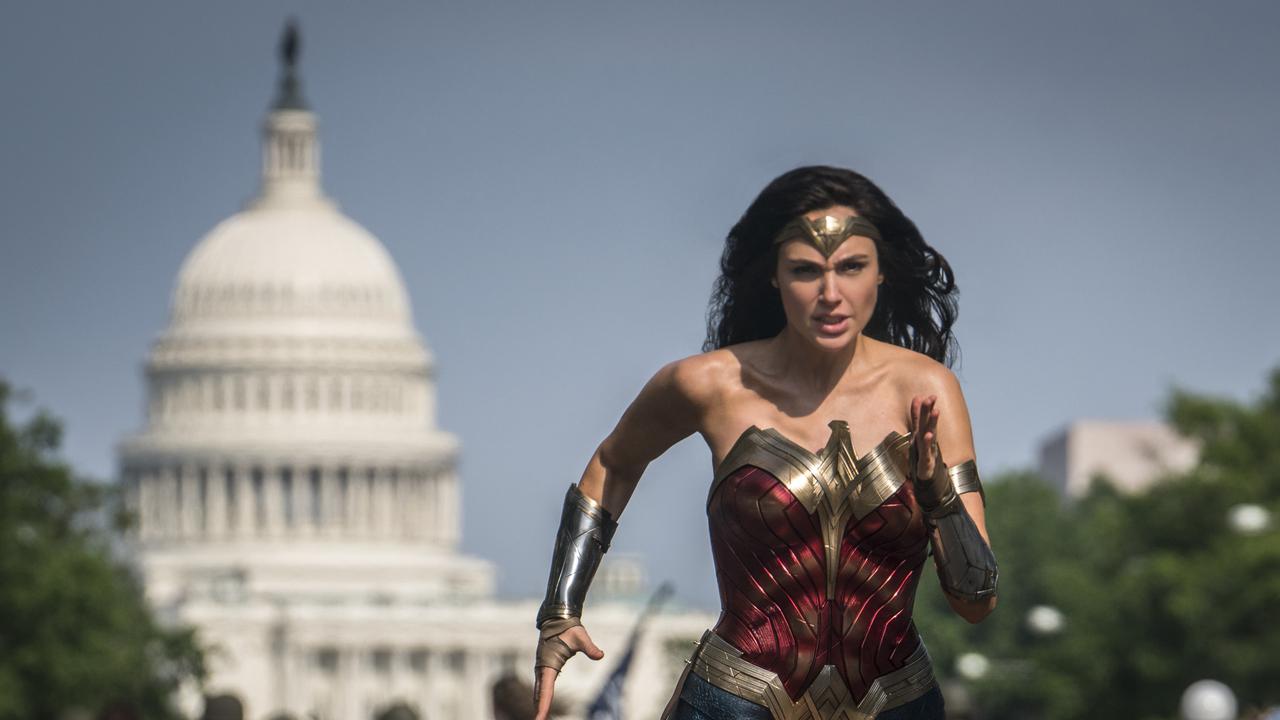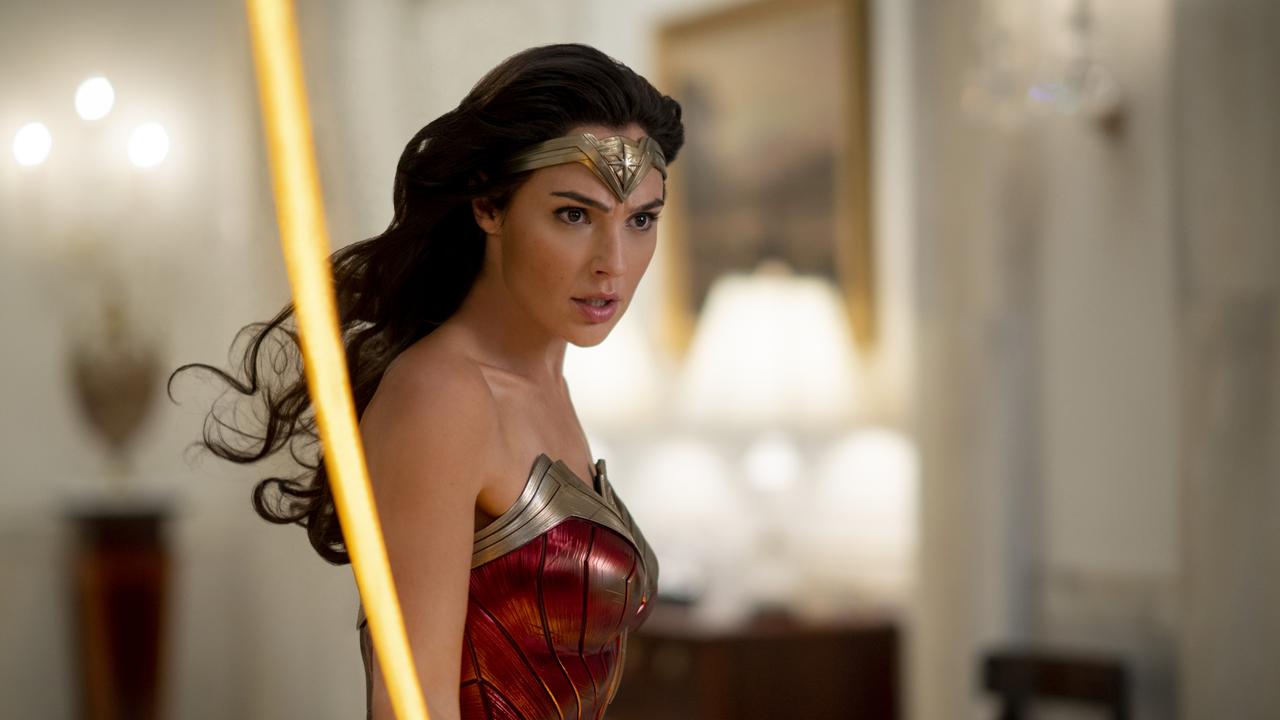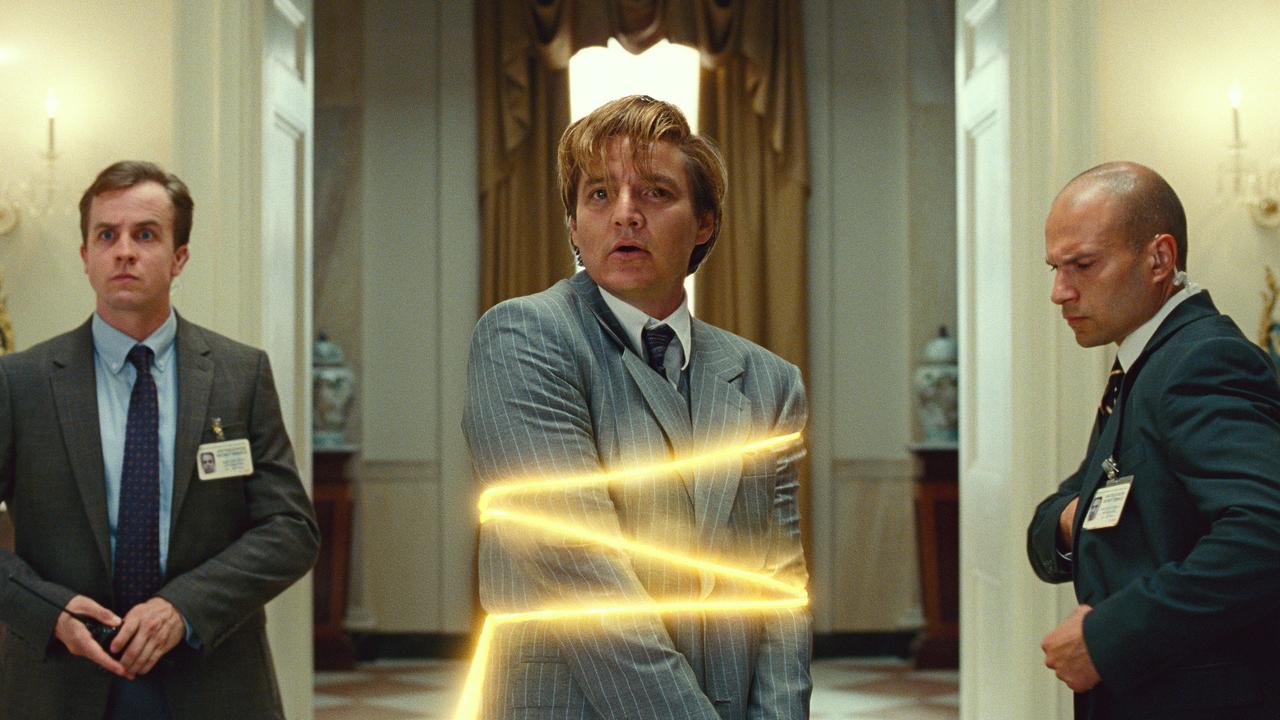Wonder Woman 1984: Gal Gadot, Pedro Pascal and Patty Jenkins on the superhero sequel
We may have waited more than a year to clap our eyes on the Wonder Woman sequel, but the delay has a silver lining.
Originally slated for release more than a year ago, it’s been a long time coming for the sequel to Patty Jenkins’ 2017 critical and box office success, Wonder Woman.
When Wonder Woman 1984 was moved from its 2019 release date to mid-2020, no one could’ve foreseen the coronavirus pandemic laying waste to the movie industry’s carefully calibrated plans.
Expectations of a North American summer blockbuster season, of packed cinemas cheering to epic scenes of Diana Prince riding thunderbolts in the sky vanished almost overnight.
Now, the film is out at the end of a bruising year. It’s playing in cinemas in Australia, where capacity has increased to 75 per cent. But in the most lucrative market of the US, where the pandemic continues to infect and kill at record rates, it will be released in a controversial hybrid model, on streaming and in the few cinemas that are open.
While that may not be the plan director and co-screenwriter Jenkins and stars Gal Gadot and Pedro Pascal had envisioned, there is a silver lining.
Colourful, big-hearted and joyful, Wonder Woman 1984 may just be the thing to lift the spirits of movie lovers who have had a tough time these past 10 months – a silver lining if there ever was one.
“We didn’t know the pandemic was going to happen, but I will say you can feel the darkness coming,” Jenkins told news.com.au over Zoom. “We’ve been headed towards some dark times. What goes on online and what’s gone on in our world, it’s been coming anyway.
RELATED: Win a camera worth $4k

“The fact that we get to release the movie, as a communion of relief, hopefully for some, is a wonderful thing.
“I think a lot of the themes we’re talking about resonate even more now, and the fact that I was craving making something joyful and uplifting, there’s never been a better time to give that than right now.”
The joy that comes from sharing Wonder Woman 1984 with the world now is something echoed by Pascal, who plays the film’s villain Max Lord.
“It’s bittersweet because it’s something we want to share with the world, even just to give a couple hours of entertainment,” Pascal said. “More than anything, it’s the art of entertainment that Patty has created here. It’s the nostalgia of the experience of going somewhere and being entertained – the delight of a movie like this.”

RELATED: Wonder Woman 1984 review
As much as Wonder Woman 1984 is a piece of cinematic entertainment with action set pieces, swooning romances and an evocative eighties soundtrack, costumes and production design, as with all good storytelling, there is another layer to it.
Pascal’s Max Lord is a wannabe businessman with a shortcut scheme to amass all the riches, an embodiment of that 1980s ethos, “greed is good”. Wonder Woman 1984’s focus on that entitlement and capitalistic obsession for growth and more is at the heart of the film.
“The messaging within this superhero movie is one of hope and humanity over greed,” Pascal said.
“It’s something we ultimately have to answer to. It’s nothing new of course, and that era, while one of incredible expression and pop culture delight, it very much represents the face of capitalism at its finest, and those things have really grown from there, haven’t they?
“Realistically, at the end of the day, all we have is each other and either we consume ourselves and the world we live in or we find a way to survive together.”

Pascal said he accepted the part before he even read the script, only ploughing through the screenplay on the plane back from London after meeting with Jenkins.
“They could’ve asked me to play a piece of furniture and I would’ve said yes,” he said. “Frankly it was shocking that they gave me the opportunity to play something that’s so rich and completed.
“That is very much a signature of Patty’s, an uncompromising honesty in the characters she portrays in stories. I didn’t know if I could achieve it, but I knew the size of the swing and how much I would have to try.”
And it was a big swing, not just for Pascal and his character, but for a movie burdened with expectations after success of the first Wonder Woman. Jenkins said the pressure of the follow-up was different to the first time around, having now proven female-fronted superhero movies could make enormous buck.
But that didn’t mean the pressure eased off.

“The first time, we were trying to prove ourselves and trying to identify the tone, and it was a process of discovery,” Jenkins said. “Making a great film is a huge amount of pressure, making a great film for a superhero that you look up to is a ton of pressure.
“I think the second time, we were ambitious to try and make an even better film – something brand new, something not more of the same.”
Driving that change and progression is Diana herself, more than 60 years on in her character journey and, according to Gadot, “no longer that wide-eyed girl”.
With the intervening decades, Jenkins and Gadot wanted to make certain the Diana we see again is not the same one who first wandered out of Thermyscira during World War I. Having lost her friends and her love, she has to balance her sense of doing the right thing with grief and loneliness.
“Now we have the opportunity to go deeper and really explore more of the character,” Gadot said. “She understands the complexities of mankind and not only that, but she shares their perspective and suffers from the same problems they suffer from.
“We just felt it is the right approach for the character and it’s something that makes her more relatable and makes it easier for us to root for her.”
That heaviness doesn’t weigh her down as much as you might expect, rather it’s a point of progression to explore how she finds a place of hope again – more reflective of 2020 than a movie originally intended for 2019 could’ve predicted.
Wonder Woman 1984 is in cinemas from Boxing Day with previews in select theatres from Wednesday, December 24
Share your movies and TV obsessions | @wenleima




